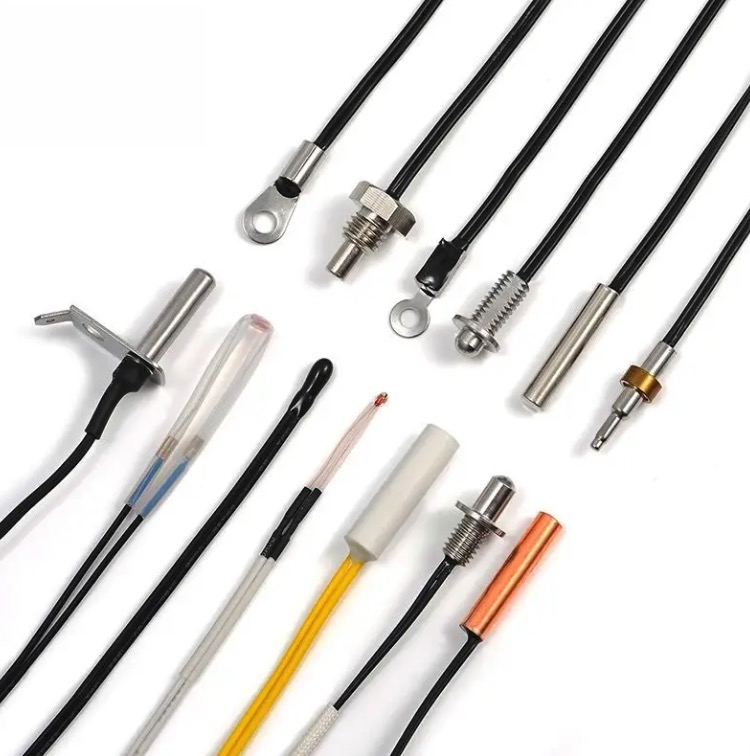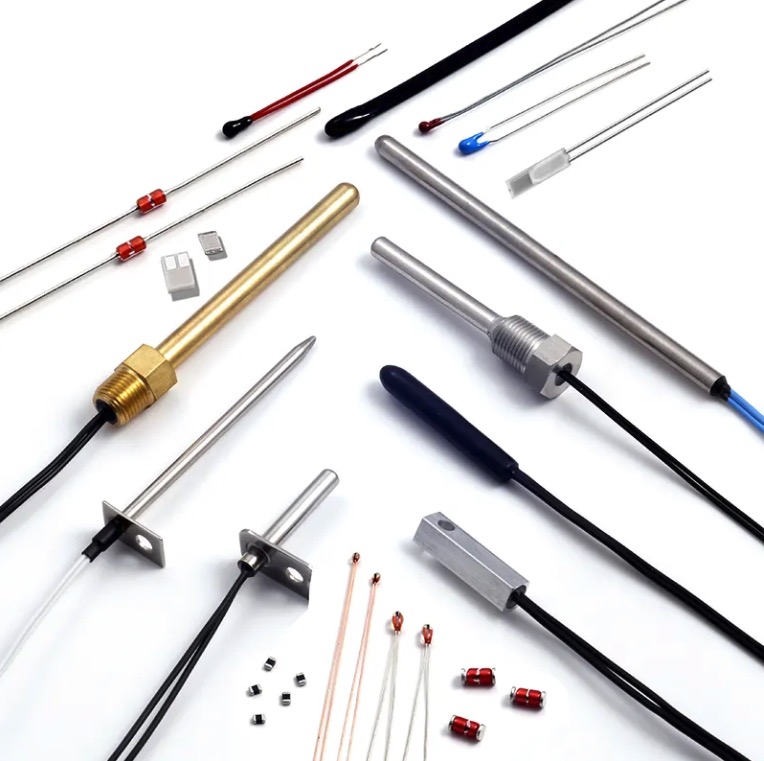In today’s technological world, temperature sensors play a crucial role across a wide range of industries. From automotive manufacturing to medical devices, industrial processes, and even refrigeration systems, the need for accurate temperature measurements is indispensable. This blog post explores the importance of temperature sensors with specific characteristics in these industries, with a focus on Thermoplastic Elastomer (TPE) sensors designed for automotive, medical, industrial, and refrigeration applications.
1. Automotive Applications:
The automotive industry heavily relies on temperature sensors to monitor and control various components’ temperatures. TPE sensors offer several advantages for automotive applications:
- Chemical Resistance: Their excellent resistance to chemical exposure makes them ideal for monitoring engine oil and transmission fluid temperatures, ensuring optimal engine performance and longevity.
- Reliable Temperature Monitoring: TPE sensors’ ability to deliver accurate temperature readings helps prevent overheating, enhancing vehicle safety and protecting sensitive automotive components from potential damage.
2. Medical Applications:
Temperature sensors are essential in the medical field, where precise temperature control is crucial for patient safety and health monitoring. TPE sensors are designed to meet the stringent requirements of medical device manufacturers. These sensors offer:
- Biocompatibility: Safe for use on the human body without causing adverse reactions, making them ideal for applications like intravenous fluid monitoring, incubators, and surgical instruments.
- Accurate Temperature Measurement: This ensures that vital healthcare equipment performs optimally, providing the best possible patient outcomes.
3. Industrial Applications:
Accurate temperature measurement is critical to ensure efficiency and safety in industrial processes. TPE sensors find numerous applications in this sector:
- Heat Monitoring: TPE sensors are widely used to monitor temperatures in industrial ovens, furnaces, and production lines, where precision is key to maintaining the correct heat levels for material processing.
- HVAC Systems: In industrial environments, these sensors help regulate indoor temperatures to create controlled and comfortable working conditions.
4. Refrigeration and Freezer Applications:
One of the emerging applications of TPE sensors is in refrigeration and freezer systems, such as those found in household refrigerators and commercial freezers. Starlight Sensors, a leading manufacturer of temperature solutions, offers specialized TPE sensors that provide:
- Waterproof Functionality: These sensors are designed to withstand moisture and humidity, ensuring accurate temperature readings even in cold, damp environments like refrigerators and freezers.
- Enhanced Durability: They are built to operate reliably under freezing conditions, helping maintain optimal temperatures for food storage and preservation.
5. Key Characteristics of TPE Sensors:
TPE sensors possess several characteristics that make them highly adaptable for different applications:
- Wide Operating Temperature Range: These sensors perform seamlessly in extreme environments, from the high temperatures of automotive engines and industrial processes to the cold of refrigeration systems.
- Chemical Resistance: Ideal for applications where exposure to corrosive chemicals is common, such as automotive engines or industrial settings.
- Flexibility and Waterproof Design: TPE sensors offer the flexibility to integrate into different systems and components easily, while their waterproof design makes them suitable for use in wet environments like freezers and refrigerators.
6. Importance of Optimized Temperature Sensors:
Investing in temperature sensors optimized for specific industry requirements is essential for maintaining safety, performance, and efficiency. Starlight Sensors is committed to providing industry-specific solutions, ensuring that TPE sensors meet the unique demands of each application. Whether for automotive, medical, industrial, or refrigeration uses, these sensors deliver:
- Accurate Monitoring: Ensuring safety and preventing equipment failures.
- Cost-Efficiency: Optimized sensors contribute to better performance and longer product lifespan, ultimately saving costs.
Conclusion:
Temperature sensors are indispensable tools across automotive, medical, industrial, and refrigeration sectors. Thermoplastic Elastomer (TPE) sensors, offered by Starlight Sensors, stand out due to their versatility, chemical resistance, waterproof functionality, and adaptability to a range of applications. By investing in specialized TPE sensors, industries can enhance safety, optimize operations, and improve overall efficiency. These sensors are an ideal solution for automotive engines, medical devices, industrial processes, and even cold environments like freezers and refrigerators.
Want to learn more about TPE temperature sensors for your specific application? Visit Starlight Sensors for further information!





